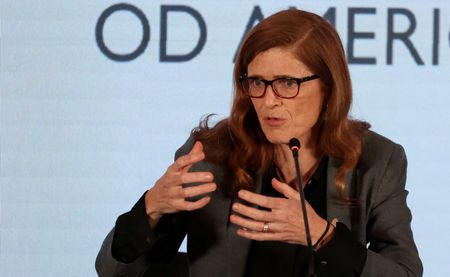
India reacted swiftly to help Sri Lanka: USAID administrator Samantha Power

New Delhi, Jul 27 (PTI) India reacted “really swiftly” with an absolutely critical set of measures to help Sri Lanka tide over its economic crisis, but calls to Beijing to provide significant relief have gone unanswered, visiting USAID administrator Samantha Power said on Wednesday.
In an address at an event in Delhi IIT, Power said China became one of Sri Lanka’s “biggest creditors” offering often “opaque loan” deals at higher interest rates than other lenders, and wondered whether Beijing would restructure the debt to help the island nation. Power is on a visit to India from July 25 to 27. The US Agency for International Development (USAID) is one of the leading aid agencies globally. “India has reacted really swiftly with an absolutely critical set of measures,” she said.
The USAID administrator also referred to India’s Line of Credit of USD 3.5 billion (one billion = 100 crores) to Sri Lanka and other assistance to help the country steer its economy out of default and further collapse. “Contrast this with the People’s Republic of China which has been an increasingly eager creditor of the Sri Lankan governments since the mid 2000s,” Power said.
“Indeed, over the past two decades, China became one of Sri Lanka’s biggest creditors offering often opaque loan deals at higher interest rates than other lenders and financing a raft of headline grabbing infrastructure projects with often questionable practical use for Sri Lankans including a massive port that generated little income and was barely used by ships,” she said in an apparent reference to the Hambanthota port.
Power said India has helped countries around the world in times of difficulties. The US official said Beijing promised Lines of Credit to Sri Lanka but it paused to provide significant relief. “The calls to provide more significant relief gone unanswered and the biggest question of all is whether Beijing will restructure debt to the same extent as other bilateral creditors,” she said.
In her address, Power also underlined the need for upholding democratic principles, individual rights and importance of a pluralistic society. PTI MPB DV DV

















POST COMMENTS (0)